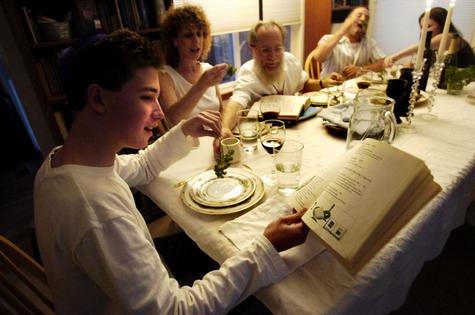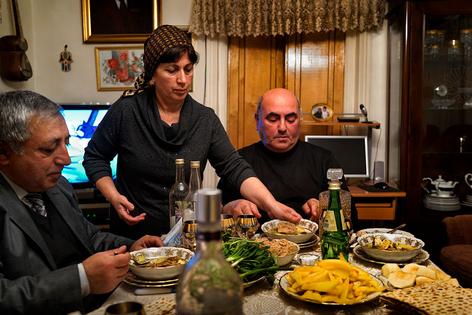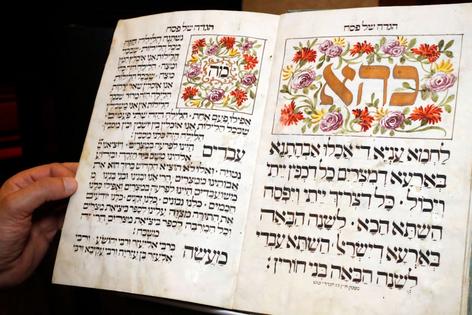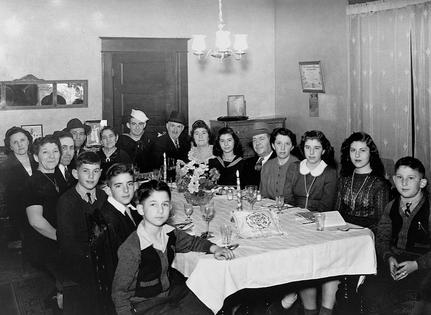Why is Passover different from all other nights? 3 essential reads on the Jewish holiday
Published in News & Features
Boxes of matzah stacked high in grocery stores? It’s almost Passover. Wednesday, April 5, marks the first night of the weeklong Jewish holiday in 2023.
For many people who celebrate it, Passover brings to mind memories of Seder meals with family and reading from the Haggadah, the script for the Seder ritual, which commemorates the biblical story of the Israelites’ flight from slavery in Egypt. It’s a holiday, in other words, with remembrance and tradition at its core.
But that doesn’t mean it’s unchanging. As these scholars explain, Passover has been evolving from the start, reflecting Jewish communities’ experiences around the world – right up to the past few years, with Zoom Seders amid the COVID-19 pandemic. It’s about honoring freedom not only yesterday, but today and tomorrow. Here we spotlight three articles from our archives.
The central story of Passover, and the holiday’s name itself, come from the biblical book of Exodus, where Moses leads the Israelites out of slavery in Egypt. Before their escape, God punishes the Egyptians with a series of plagues, including the death of firstborn sons – but tells the Israelites to put the blood of a sacrificed lamb above their doors so they shall be passed over and spared.
Even before they have actually departed Egypt, God commands Moses that the Israelites should commemorate this event. The narrative of persecution and liberation “fuses the present moment with the past, encouraging each participant to imagine themselves as part of the first generation to leave Egypt,” writes Samuel Boyd, a scholar of the Bible and ancient Judaism at the University of Colorado Boulder.
The Haggadah is a guide to Passover’s central ritual, the Seder meal traditionally celebrated on the first and sometimes second evening. Some of the Haggadah’s rituals may be nearly two millennia old, Boyd notes. Yet “almost like a time machine,” the traditions “encourage the participants to reflect, in different ways, on the significance of liberation and how to communicate it to future generations.”
Read more:
Over the past few years, Zoom Seders became the norm for many Jewish families unable to celebrate in person with their loved ones.
That in itself might be a brand-new experience, but Passover and Judaism are no strangers to innovation, Boyd explains. And few things illustrate that history like the temple in Jerusalem.
According to the Bible, the temple was God’s home, and central to ancient Israelite worship. After it was destroyed not once but twice, Jewish leaders were left “with profound questions” about how to connect with God and offer sacrifices.
Gradually, Jews came to see prayer as a form of sacrifice, one that could be performed anywhere in the world. It was an idea rooted in biblical passages drawing comparisons between the two: Psalm 141:2, for example, which says “Take my prayer as an offering of incense, my upraised hands as an evening sacrifice.”
“Following the destruction,” Boyd writes, “the way that Jewish communities worshiped God changed forever” – and has kept evolving today.
Read more:
One of the most famous Passover examples? The Maxwell House Haggadah – yes, like the coffee company.
Thousands of different Haggadahs exist, each one supplementing the core store from Exodus with different readings. But in the United States, one of the most popular for decades was a simple version “dreamed up in 1932 by the coffee corporation and a Jewish advertising executive” who grew up on New York’s Lower East Side, explains Kerri Steinberg, a professor at Otis College of Art and Design who researches advertising’s impact on religion. During the Great Depression, Maxwell House followed his firm’s advice to distribute a Haggadah for free with each can of coffee in an effort to boost sales.
Maxwell House’s Haggadah has become a classic, with even the White House using it. But it’s also changed with the times: nixing words like “thee” and “thine,” for example. There’s even a special edition themed for hit TV show “The Marvelous Mrs. Maisel.”
“In a sea of thousands of Haggadahs, it is Maxwell House’s that has become the de facto representative of American Jewish life,” Steinberg wrote.
Read more:
Editor’s note: This story is a roundup of articles from The Conversation’s archives.
This article is republished from The Conversation, an independent nonprofit news site dedicated to sharing ideas from academic experts. Like this article? Subscribe to our weekly newsletter.
Read more:
American Jews and charitable giving: An enduring tradition
Israel’s military reservists are joining protests – potentially transforming a political crisis into a security crisis

















Comments